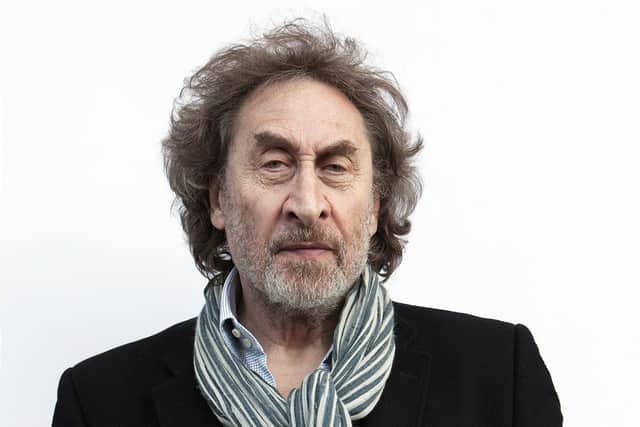Edinburgh International Book Festival roundup: Janey Godley | Howard Jacobson | Rupert Thomson
It feels like half of Scotland has been following stand-up comic Janey Godley and her battle with cancer on Twitter, so it was a joy to see her in good health addressing an almost full house at the Book Festival’s largest venue, Central Hall. One of the first things she did, in conversation with Ruth Wishart, was to challenge the “fighting” language. Sometimes you are broken as well as brave.
She is in the clear for now, she says, but there’s a probability the cancer will return. That said, she’s planning to go on tour next year (The “No Deid Yet” Tour), and joking about her demise. At her funeral, she says, there will be discount vouches for her favourite deli, with “itsashamejaneysdeid” as the access code.
With so much to talk about, it was easy to forget Godley was here to talk about her first novel, Nothing Left Unsaid, a crime story set in Glasgow’s east end recalling the world in which she grew up. Set partly in the 1970s and partly today, the book celebrates the women, often abandoned by their menfolk and raising kids alone (like Godley’s mum), a resourceful sisterhood of Bridies and Sengas and Philomenas who stood by one another.


Whether it’s a result of her stand-up career, or having been a pub landlady in the east end for 15 years, Godley was unfazed by any question (watching the subtitle software trying to keep up with her colourful patter added another layer of hilarity). She put it this way: “Once you’ve been through a giant hysterectomy, or stood in a pub in Shettleston in the 1980s when a man comes in with a gun, everything else is like a Tuesday.”
A short half hour later, Booker-winning novelist Howard Jacobson, now 79, was in the spotlight, a big white shawl wrapped around his neck as he is suffering from laryngitis. It didn’t take long, however, for the famous raconteur to shake off the shawl, his voice growing stronger the more he talked.
His latest book is Mother’s Boy, a memoir about his beginnings as a writer, though he also described it as a book which “says sorry to those people I feel I’ve wronged”. He was a disappointment to his father, he said, being shy and bookish, and he feels he was not the father he should have been to the son from whom he was estranged for some years.
Jacobson’s first novel, Coming From Behind, was published when he was 40, with an “if not now, then never” energy. But he said that the cancel culture climate in publishing today could easily count against him. “I think if I wrote my first novel now, I’d have trouble getting it published. There’s hardly anything in it that’s offensive, but you have to be more than non-offensive, you have to be seen to be reaching out beyond. I’m everything it’s wrong to be: a straight, white, man ... and being Jewish doesn’t make you diverse!”
One of the joys of the Book Festival is discovering writers whom you should have known about already, and novelist Rupert Thomson occupies a prominent place in that category. Despite widespread acclaim for his 13 novels, and appearing on David Bowie’s top 100 books list in 2013, he has somehow missed out on big prizes and bestsellerdom.
He engaged in an in-depth conversation (down to the level of sentence structure) with Daniel Hahn about his new novel, Barcelona Dreaming, a group of three interlinked stories celebrating the city which was his home for four years. Thomson loves “stories of darkness set in bright sunshine”, and was writing about the city on the cusp of the financial crash in 2008, though the sense of imminent change resonates anew in the wake of the pandemic.